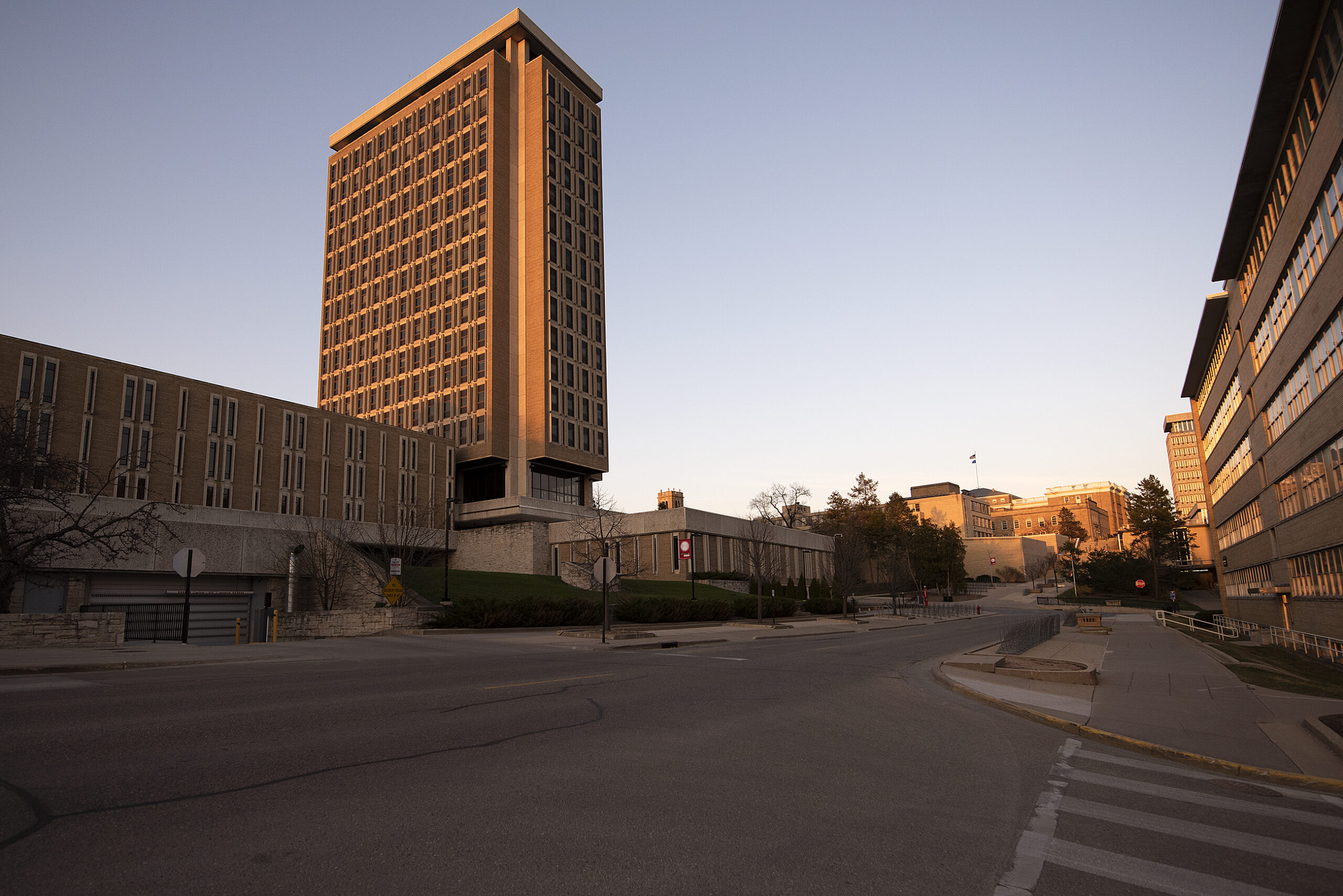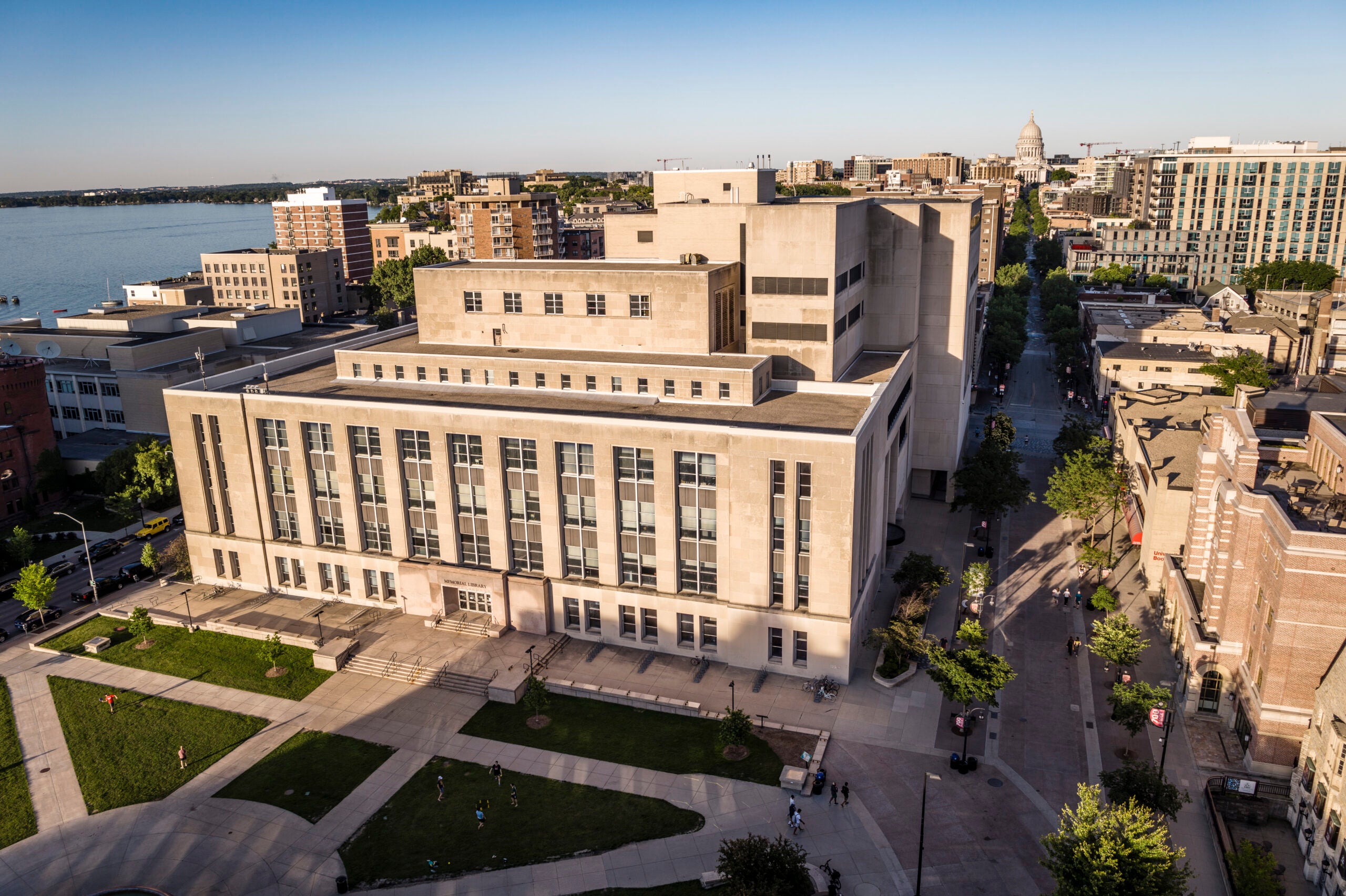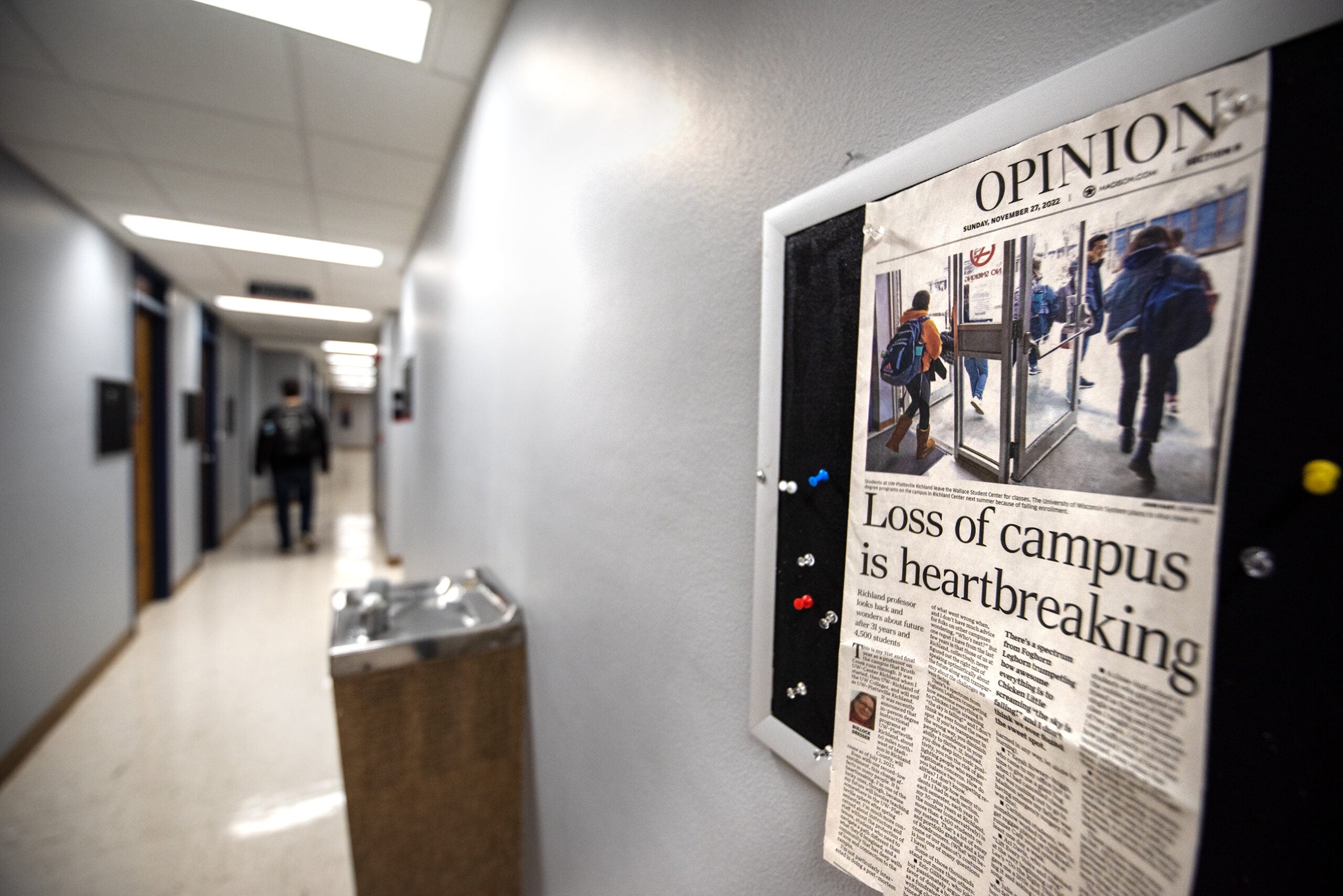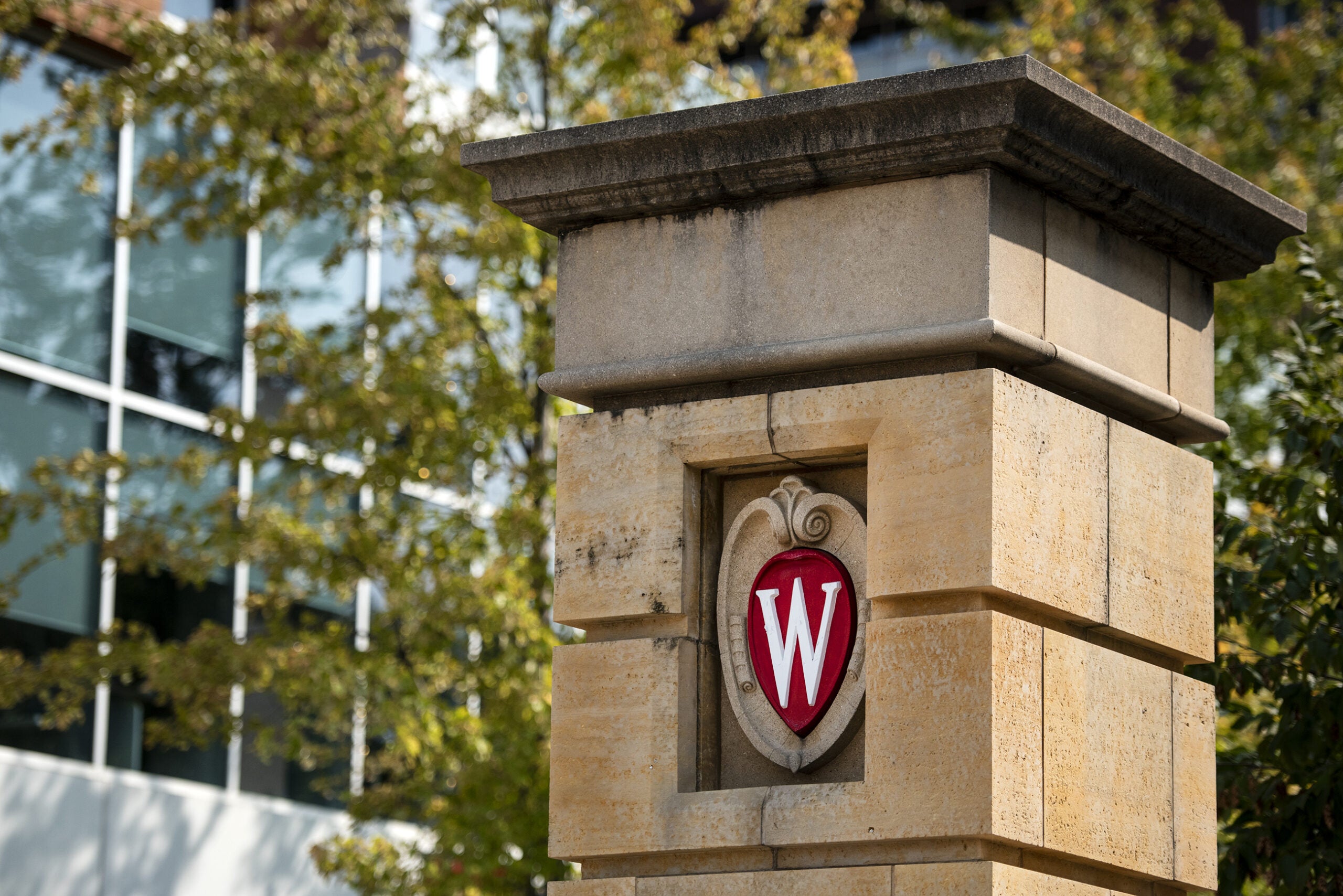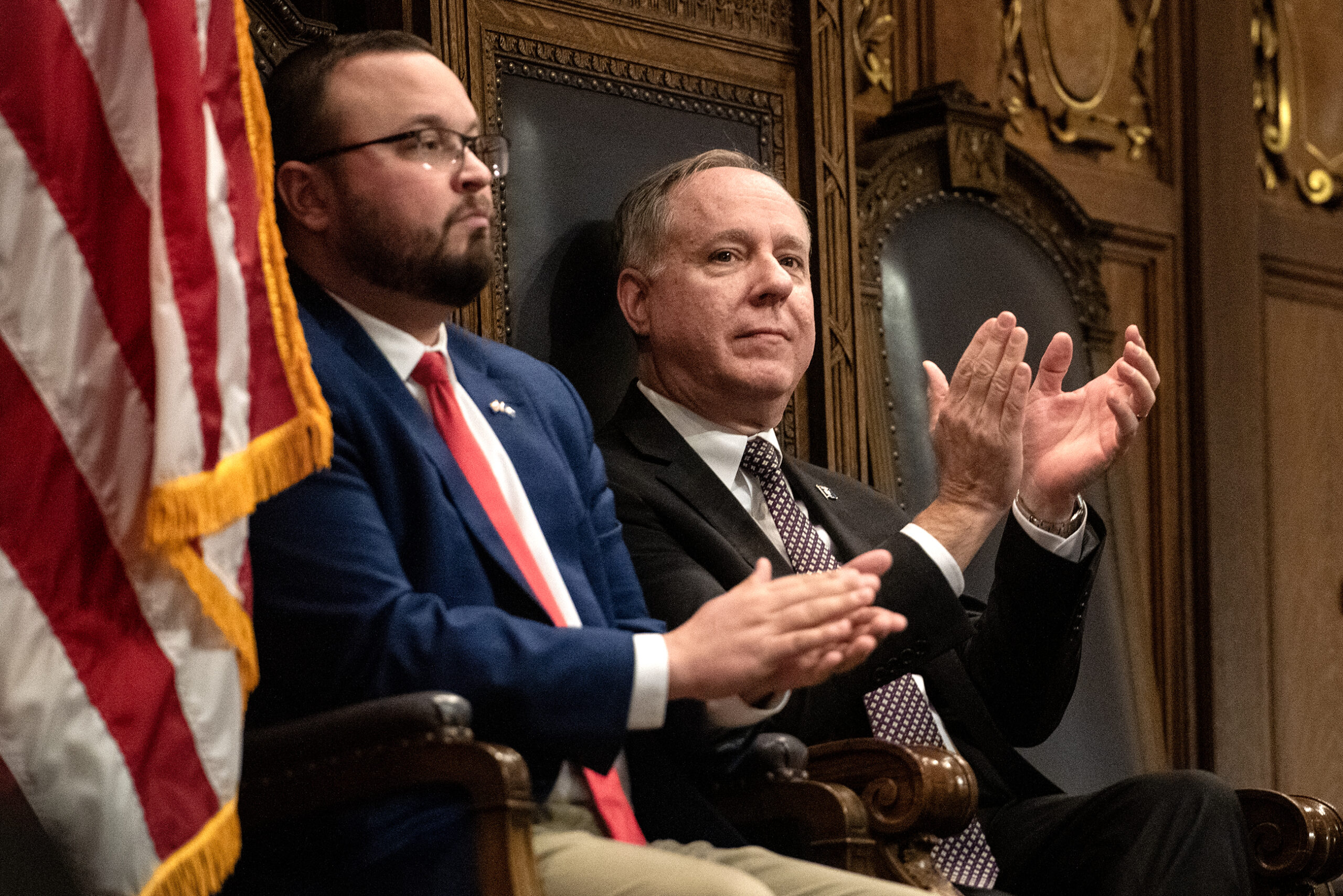Wisconsin Republicans have delayed a vote on the state’s budget for the University of Wisconsin System, hours after a top GOP leader pledged the Legislature would cut the UW’s budget by tens of millions of dollars.
Republicans who run the Legislature’s budget committee met privately for roughly eight hours Tuesday, reconvening to announce the delay. It was not immediately clear when they planned to reschedule the vote.
The move followed comments from Assembly Speaker Robin Vos, R-Rochester earlier in the day where he indicated to the Associated Press that Republicans would cut the UW’s budget by about $32 million. Should lawmakers move forward with the cut, it would come at a time when the state’s budget surplus is higher than it’s ever been with a projected balance of roughly $7 billion.
News with a little more humanity
WPR’s “Wisconsin Today” newsletter keeps you connected to the state you love without feeling overwhelmed. No paywall. No agenda. No corporate filter.
The budget proposed by Democratic Gov. Tony Evers would have increased funding to the UW from all sources by about $300 million. His budget would have grown overall state funding to the UW by about $130 million.
Vos said he wants to cut all funding the university system would use for diversity, equity and inclusion initiatives, frequently referred to as DEI.
“I hope we have the ability to eliminate that spending,” Vos told the AP. “The university should have already chosen to redirect it to something that is more productive and more broadly supported.”
The speaker’s comments came hours before the Legislature’s budget committee was scheduled to vote on the budget for the UW System.
Democratic Gov. Tony Evers blasted the move in a written statement, saying the cuts would be disastrous to the UW System.
“Make no mistake, Speaker Vos and Republicans’ short-sighted move to gut our UW System by tens of millions of dollars is about one thing—Republicans’ decade-long war on higher education institutions in our state,” Evers said.
BREAKING: Republicans on the Joint Finance Committee are set to vote to cut tens of millions of dollars from the @UWSystem.
Read my full statement :arrow_down: pic.twitter.com/JDkf98b7gG
— Governor Tony Evers (@GovEvers) June 13, 2023
Vos has hinted for the past couple months that the university’s diversity efforts could prompt budget cuts by lawmakers, pointing to a WisPolitics review that found the UW System spends about $13.6 million annually on 185 administrators related to DEI. The positions, Vos said, showed the university had gone “from being an institute of higher education to an institute of indoctrination.”
In early May, the UW pledged that it would no longer require diversity, equity and inclusion statements from job applicants, with UW System President Jay Rothman acknowledging that some people felt the statements were “political litmus tests” in the context of hiring decisions. But Rothman said the university remained “absolutely committed” to the principles of DEI.
On May 24, in a letter to chancellors and regents, Rothman reaffirmed that commitment, announcing the hire of a new chief diversity officer charged with improving graduation rates for historically underserved students.” The new officer is also tasked with recruiting diverse faculty and staff and ensuring an inclusive environment for all students.
“We know that when we support an inclusive environment at our universities, students are more likely to succeed, and recruitment and retention efforts are strengthened,” Rothman wrote at the time.
But the budget cuts by Wisconsin Republicans at the state’s university system predate the latest dispute over diversity funding, and are part of a longer trend dating back at least a decade.
Excluding debt service, the university’s state funding grew by a total of 10 percent from the 2012-13 budget to the current budget in 2022-23. Over that same period, the consumer price index grew by nearly 28 percent, or nearly three times as much.
A recent report by the Wisconsin Policy Forum found state funding for four-year UW System universities ranked 43rd in the nation. A major reason for the decline, according to the Policy Forum, was a decade-long freeze on resident undergrad tuition.
The freeze was first implemented by former Republican Gov. Scott Walker in the 2013 state budget after Republicans complained about the size of cash reserves at UW campuses. GOP lawmakers continued that mandatory freeze until the 2021 budget, when the university carried over the freeze voluntarily.
The UW’s reserves have gotten smaller over that time. A tuition fund balance that was about $550 million in 2013 was down to about $300 million in 2022, according to the nonpartisan Legislative Fiscal Bureau. The UW says that’s enough to pay for about 39 days of operating expenses.
Recent data from the State Higher Education Executive Officers Association showed that 10 of the system’s 13 campuses have structural deficits.
The Board of Regents sought to reverse that trend this year, voting to increase tuition for residents by an average of about 5 percent. Overall, the UW’s tuition hikes are projected to generate $38 million annually for the university. When taken together with increased fees proposed by the University System, UW revenue would go up by a projected total of nearly $76 million per year.
Part of that is borne out of necessity, according to the UW. The COVID-19 pandemic resulted in a loss of more than $800 million due to a combination of enrollment declines and forgone tuition revenue as well as higher expenses like COVID testing. Even when offset by increased federal aid, the UW said it lost more than $210 million since the spring of 2020.
Vos’ comments about a cut to the UW’s funding came weeks after the Legislature’s budget committee voted for a $2.4 billion capital budget that denied funding for a new $347 million engineering building at UW-Madison, which the UW System called its top priority.
Editor’s note: Wisconsin Public Radio is a service of the University of Wisconsin-Madison and the Wisconsin Educational Communications Board.
Wisconsin Public Radio, © Copyright 2026, Board of Regents of the University of Wisconsin System and Wisconsin Educational Communications Board.

